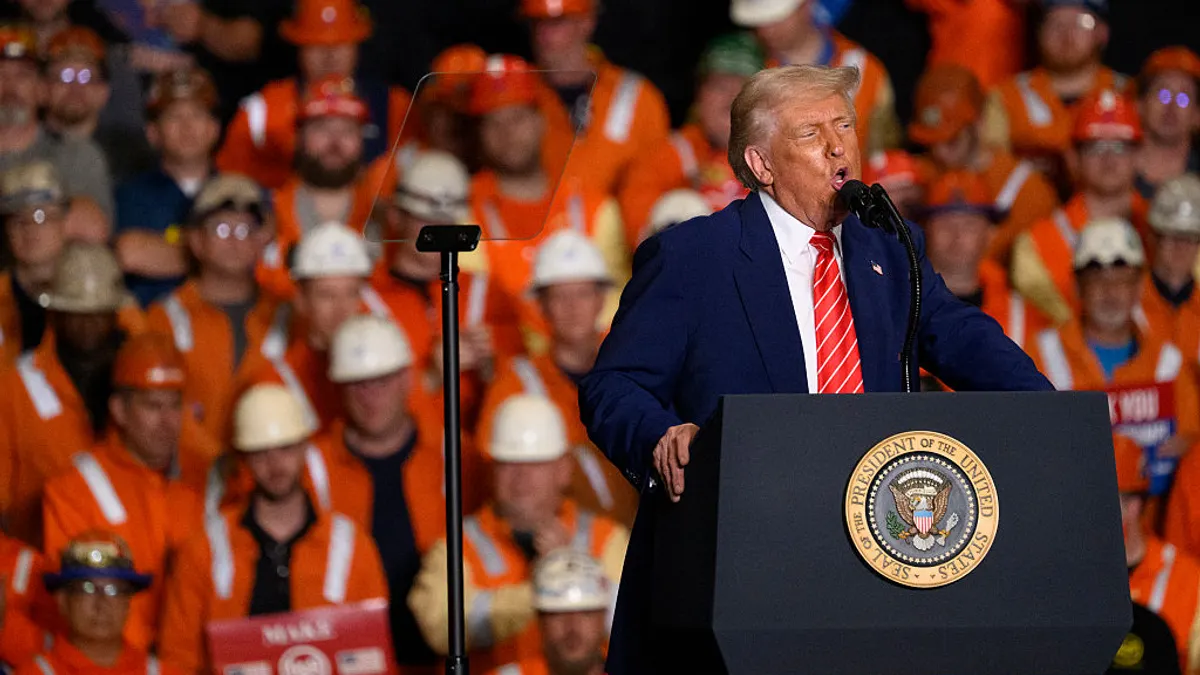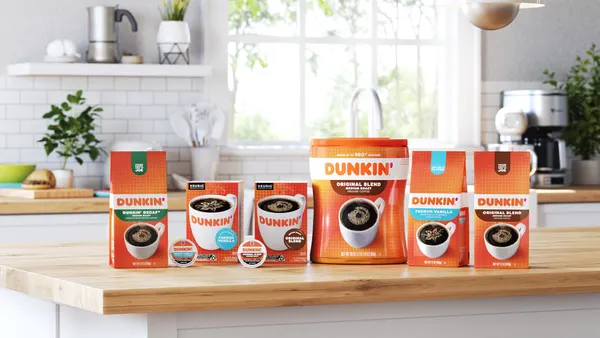The manufacturing industry's monthslong struggle with the Trump administration's tariff policies continued in May, with demand still down and prices up, according to the Institute for Supply Management’s May Purchasing Managers’ Index.
ISM's index registered 48.5% in May, down 0.2 percentage points compared to the month before. A PMI index below 50.0% shows an industry in contraction.
Production, which dropped drastically last month, rose slightly to 45.4% even as manufacturers continue to stay conservative amid demand uncertainty. Supplies, however, are dwindling at some facilities as companies run through the inputs they pulled ahead earlier this year in an effort to avoid upcoming tariffs.
The import index plunged 7.2 percentage points to 39.9%, the lowest reading since May 2009, Susan Spence, chair of the Institute for Supply Management Manufacturing Business Survey Committee, said during a media call Monday. If a backlog can't make up for depleted inventories, Spence said she worries it's "going to be really, really bad news for production," in the months ahead.
"You have to have something coming in to be able to produce it," Spence said. "So if things continue to be down and you're getting that inside of your four walls, then how can production be up?"
Deliveries also continued to be slow last month, which Spence attributed to congestion at ports as companies disagree over who will pay for heightened import costs.
The muted outlook was in line with ISM's economic forecast for the second half of the year, which predicted that revenue for the year will grow by only 0.1% due to rising prices and an uncertain macro environment.
Manufacturers aren't likely to get relief from many of Trump's tariffs anytime soon, with the president announcing hikes on aluminum and steel tariffs up to 50%, set to take effect on Wednesday.
S&P's May PMI report was more positive, showing the industry in expansion at 52, up from 50.2 in April. Surveyed manufacturers expressed some renewed confidence in upcoming trade stability, with employment also up slightly.
Domestic demand, however, far outweighed foreign orders, as tariff policies weighed on overseas consumers. These factors convey a more worrying picture of an industry that could be experiencing a short-term rebound, according to S&P's report.
"The rise in the PMI during May masks worrying developments under the hood of the US manufacturing economy," Chris Williamson, chief business economist at S&P Global Market Intelligence, said in a statement. "While growth of new orders picked up and suppliers were reportedly busier as companies built up their inventory levels at an unprecedented rate, the common theme was a temporary surge in demand as manufacturers and their customers worry about supply issues and rising prices."
Continued uncertainty was the main theme in ISM's report as well, with concerns about tariffs making up 86% of headline comments from survey respondents, according to Spence. Companies that must recalculate their bill of materials multiple times a week are struggling with the current operating environment.
"So [the tariff policy] is not benefiting anybody right now, that is for sure. Perhaps in the long term, if there was a decision that wasn't changed so often. It's just really the uncertainty," Spence said.
















